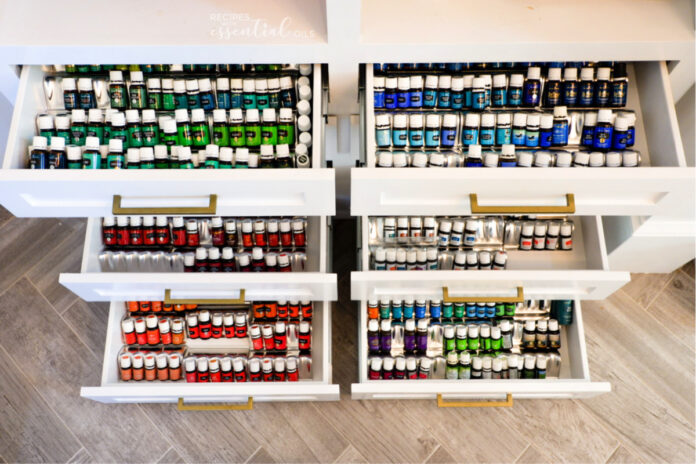Essential oils are rapidly being used in various goods and by themselves. Essential oils are used in aromatherapy candles, bath oils, and room fresheners. DIY producers and small manufacturers have contributed to their popularity by providing an alternative to industrial items containing artificial chemical fragrances. If you use essential oils for any reason, keep reading to learn about how to store them properly.
First and foremost, essential oils purchased in small quantities or bulk must be stored in aluminum bottles. This is because essential oils are quite delicate and can be easily affected by the material of the bottle in which they are stored.
For example, if you use a plastic container, the plastic molecules may transfer into the oil, contaminating the oil. When it comes to essential oils, people are looking for qualities such as purity, naturalness, and wholesomeness. When aluminum bottles contact oil, they retain their molecular integrity and pose no risk of contaminating the product.
You should keep in your mind a few things before storing your essential oils.
Factors Affecting Essential Oil Shelf Lives:
Before addressing the issue of essential oil spoilage, it’s critical to understand the factors that influence oil shelf lives. By this way, you’ll be able to pinpoint exactly what’s causing your essential oils to go bad. Knowing the underlying cause can also assist you in determining the most effective solution to the problem.
Oxygen:
When liquids are exposed to oxygen, oxidation occurs as a byproduct. Evaporation occurs due to this natural process, reducing the quality and quantity of liquids. Essential oils degrade and evaporate when exposed to air for an extended period. They can still be used for diffusion and cleaning products but not for aromatherapy. Furthermore, oxidized oils should not be used topically.
Light:
Sunlight can hurt your essential oils. When these oils are exposed to direct sunlight, their chemical constituents can degrade. As a result, the essential oils’ appearance, color, aroma, and effectiveness will be lost, and there will be no way for the oils to regain these properties.
Moisture:
When moisture gets into the aluminum bottles containing your essential oils, they will likely become cloudy. Another effect is that water from the moisture will bead up inside the bottles. This scenario can cause your essential oils to lose their purity and overall quality over time.
Heat:
Because essential oils are essentially flammable, they should not be stored near high temperatures. This means they should not be left near heat or fire sources such as open flames, stoves, or candles. When subjected to high temperatures, they may reach their flashpoints and ignite. Aside from that, essential oils frequently exposed to heat will deteriorate faster.
Select the Proper Container for essential oils:
Essential oils should be stored in aluminum bottles. The darker color helps to keep light out while also preserving the integrity of your oil. Never store essential oils in any plastic container because they are corrosive and will eat through the plastic. Only aluminum bottles should be used.
To help avoid oxidation and moisture, always store essential oils with their lids tightly closed.
Final Words:
For decades, most essential oil producers have packaged essential oils and flavors in aluminum bottles. They’re more light-proof than glass bottles, and they’re also lighter, leak-proof, and tamper-proof.
Even if aluminum bottles appear to be more expensive than glass bottles, the cost of protecting a glass bottle, the risk of breakage, and the additional shipping cost must be considered when comparing.
































